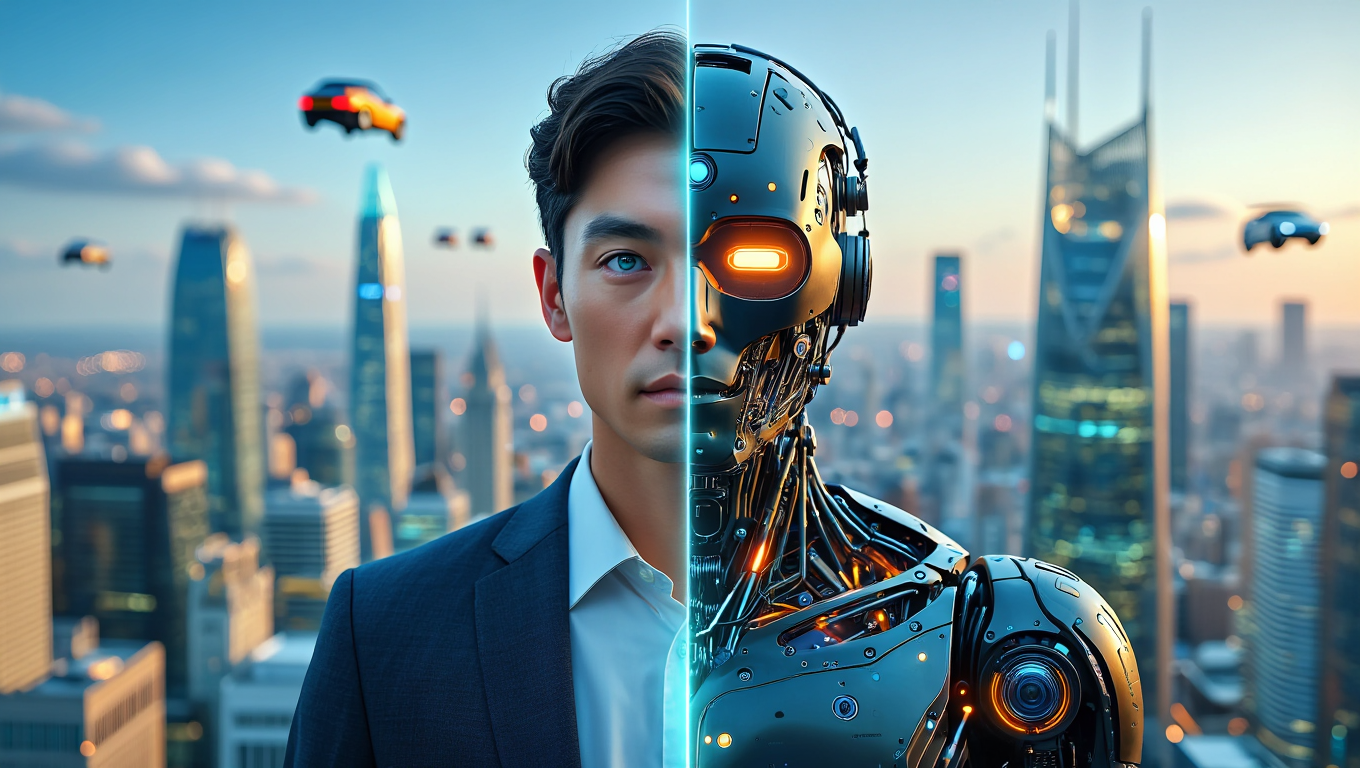The Future of Work: Will AI Take Over Jobs or Create New Opportunities?
The integration of Artificial Intelligence (AI) in the workplace has sparked a heated debate on whether it will lead to job displacement or create new opportunities for workers. As technology continues to advance at a rapid pace, industries across the board are being impacted by the adoption of AI technologies. In this article, we will explore the multifaceted implications of AI on the future of work, from the potential for job creation to the ethical considerations surrounding AI in the workplace. By examining case studies, discussing industry-specific impacts, and providing strategies for upskilling and adapting to the changing landscape of work, we aim to shed light on the complex relationship between AI and the future of employment.
1. Introduction to the Impact of AI on the Future of Work
The rise of Artificial Intelligence in the workplace
Artificial Intelligence (AI) is no longer just a buzzword; it's a game-changer in the way we work. From chatbots to autonomous vehicles, AI is revolutionizing industries across the board, promising increased efficiency and productivity.
Historical context and evolution of AI technology
The journey of AI dates back to the 1950s, with milestones such as IBM's Deep Blue defeating chess grandmaster Garry Kasparov in 1997. Fast forward to today, AI algorithms power everything from virtual assistants like Siri to predictive analytics in business, marking a significant technological evolution.
2. The Debate: Job Displacement vs. Job Creation
Concerns about job loss due to AI automation
There's a looming fear that AI will render human employees redundant, particularly in routine or repetitive tasks. As automation algorithms become more sophisticated, the debate on job displacement intensifies, raising questions about the future of employment.
Potential for new job opportunities and roles
On the flip side, AI also presents a myriad of new job prospects. Industries like data science, cybersecurity, and AI ethics are burgeoning, creating demand for skilled professionals who can collaborate with AI tools to drive innovation and growth.
3. Industries Most Affected by AI Technology
Impact of AI on manufacturing and traditional industries
The impact of AI is palpable in manufacturing, with robots and drones streamlining production processes. Traditional industries like retail and logistics are also undergoing a transformation, leveraging AI for inventory management and customer service.
Growth of AI in healthcare, finance, and other sectors
In healthcare, AI assists in diagnostics and personalized medicine, enhancing patient care. Financial institutions use AI for fraud detection and risk assessment, showcasing the versatility of this technology across diverse sectors.
4. Skills and Training for the Future Workforce
Developing skills for AI-driven roles
As AI reshapes the job landscape, acquiring skills like data analysis, programming, and critical thinking is crucial for staying relevant. Adaptability and a willingness to learn new technologies are key for professionals eyeing AI-driven roles.
The importance of continuous learning and upskilling
Continuous learning isn't just a buzz phrase; it's a necessity in the age of AI. Upskilling programs and online courses offer avenues for workers to upgrade their skills and stay competitive in a rapidly evolving job market, ensuring they ride the wave of AI rather than being swept away by it.
5. Ethical Considerations and Social Implications of AI in the Workplace
Data privacy and security concerns with AI integration
As AI continues to revolutionize the workplace, concerns about data privacy and security are at the forefront. With vast amounts of sensitive information being processed by AI systems, ensuring that data is protected from breaches and misuse is crucial. Companies must prioritize robust cybersecurity measures and transparent data handling practices to build trust with employees and customers.
Addressing bias and fairness in AI algorithms
One of the challenges with AI in the workplace is the potential for bias in algorithms, leading to discriminatory outcomes. It is essential for organizations to actively work towards eliminating bias by regularly auditing AI systems, diversifying data sources, and involving diverse teams in the development and deployment of AI technologies. Striving for fairness and accountability in AI decision-making processes is key to fostering an inclusive work environment.
6. Case Studies: Successful Integration of AI in Work Environments
Examples of AI implementation leading to improved efficiency
Numerous companies have successfully integrated AI into their work environments, leading to significant improvements in efficiency. From automating routine tasks to enhancing customer service through chatbots, AI has enabled businesses to streamline processes and deliver better outcomes. Case studies showcasing these successful implementations serve as valuable blueprints for other organizations looking to leverage AI technologies effectively.
Lessons learned from companies embracing AI technologies
Companies that have embraced AI technologies have learned valuable lessons along the way. Key takeaways include the importance of clear communication about AI implementation, investing in employee training to adapt to new technologies, and continuously monitoring and refining AI systems to ensure optimal performance. By sharing their experiences and insights, these companies contribute to the collective knowledge base on integrating AI in the workplace.
7. Strategies for Embracing AI to Enhance Job Opportunities
Collaboration between humans and AI for enhanced productivity
Rather than viewing AI as a threat to job security, organizations can leverage AI as a tool to augment human capabilities and enhance productivity. By fostering collaboration between employees and AI systems, companies can unlock new opportunities for innovation and creativity. Encouraging a symbiotic relationship between humans and AI paves the way for a more dynamic and adaptive workforce.
Creating a culture of innovation and adaptation in the workforce
To fully harness the potential of AI and create new job opportunities, organizations must cultivate a culture of innovation and adaptation in the workforce. Encouraging a mindset of continuous learning, experimentation, and agility enables employees to embrace change and stay ahead in a rapidly evolving landscape. By fostering a culture that values innovation and embraces new technologies, companies can position themselves for success in the future of work.In conclusion, the future of work in the age of AI presents both challenges and opportunities for workers and industries alike. By proactively addressing the potential impacts of AI on job roles, fostering a culture of continuous learning and adaptation, and prioritizing ethical considerations in AI integration, we can navigate this evolving landscape with resilience and innovation. Embracing the possibilities that AI offers while remaining mindful of its implications is key to shaping a future where technology enhances, rather than replaces, human potential in the workforce.
The integration of Artificial Intelligence (AI) in the workplace has sparked a heated debate on whether it will lead to job displacement or create new opportunities for workers. As technology continues to advance at a rapid pace, industries across the board are being impacted by the adoption of AI technologies. In this article, we will explore the multifaceted implications of AI on the future of work, from the potential for job creation to the ethical considerations surrounding AI in the workplace. By examining case studies, discussing industry-specific impacts, and providing strategies for upskilling and adapting to the changing landscape of work, we aim to shed light on the complex relationship between AI and the future of employment.


